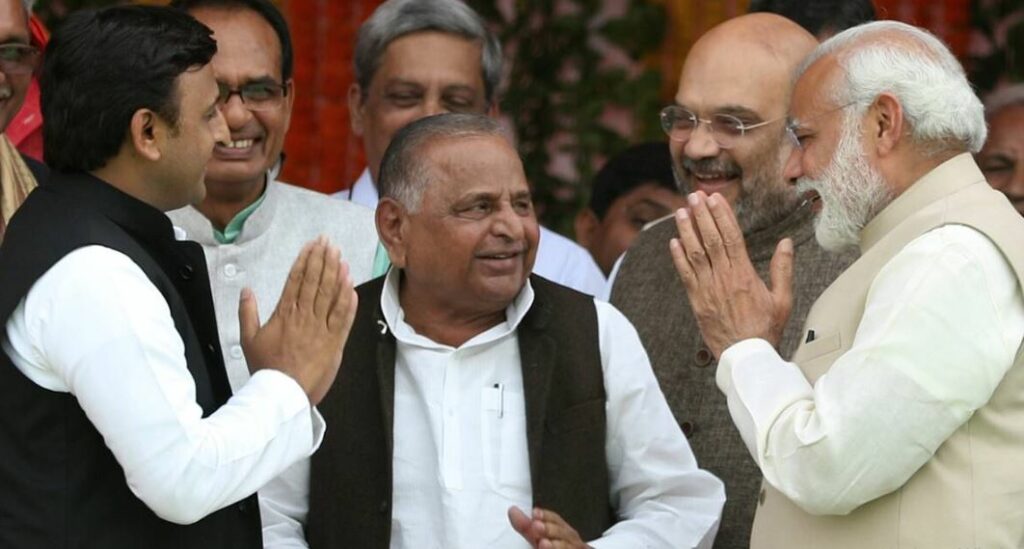Civilian honours like the Padma awards were long used as tools to please and perpetuate an establishment-supporting coterie from the media and intelligentsia. Over the last few years, we have witnessed a transformative democratisation of these awards. The rising number of awardees from the Dalit and tribal communities from the remotest parts of the country is a testament to the “People’s Padma”. To date, one of the most glaring examples of the politicisation of these awards remains the delay in giving the topmost civilian honour to the architect of the Constitution of India, Bhim Rao Ambedkar. The criminal postponement of over four decades after his death smacks of political vendetta. Similarly, thought leaders from across the aisle, with even the slightest difference in ideology and affiliation from that of the ruling dispensation, were ignored.
#ExpressOpinion | Padma Vibhushan to Mulayam Singh Yadav, a lifelong opposer of BJP, must start a national conversation on ending political polarisation
@IGuruPrakashhttps://t.co/rlWJXIpoiZ — The Indian Express (@IndianExpress) January 28, 2023
With examples like P V Narasimha Rao, Ram Vilas Paswan and Mulayam Singh Yadav, there is now a notable departure from this trend of playing favourites in the nominations for these honours. Both Narasimha Rao and Mulayam Singh Yadav were lifelong opposers of the Bharatiya Janata Party. There is an institutional effort to acknowledge the work of leaders whose contributions were instrumental in shaping our nation. The Pradhanmantri Sangrahalaya (Museum on Indian Prime Ministers) in New Delhi is increasingly becoming a spot for academic tourism that encapsulates the vision and missions of all Indian prime ministers since Independence, without an iota of bias along party lines.
As a politician, Mulayam Singh Yadav represents a social revolution in two primary senses. First, his rise led to the end of one-party dominance in the largest state of the country, and second, he played a critical role in steering the politics of the backward communities in the Indian political space. His role in ending the domination of the Congress party is not discussed much. The social experiment with Kanshiram, aimed at giving a permanent voice to marginalised communities, created a disruption. The much-discussed social engineering involved in galvanising the backward communities as a single political entity originated with Mulayam Singh Yadav. From a humble background as a primary school teacher and a local wrestler, he rose to become the defence minister at a critical juncture in the life of our nation. The period during which VP Singh was Prime Minister is difficult to imagine and articulate without understanding the role of Mulayam Singh Yadav — he was the bulwark of the government who ensured that political parties toe the line that was essential to maintain a stable government.
As a true successor of Ram Manohar Lohia and Raj Narain, he refused any political arrangement with the Congress party. Mulayam Singh Yadav can be credited for keeping Ram Manohar Lohia alive in the political discourse for as long as he was active.
In one of his Lok Sabha speeches, Mulayam Singh Yadav made a prophetic statement about Prime Minister Narendra Modi: “Modi ji sabko saath lekar chalte hai, mujhe poora bharosa hai ki aap hi dobara PM banenge” (PM Modi believes in making everyone a stakeholder and I have no doubt in my mind that he will again become the PM). In the age of no-holds-barred politics, this statement is a ray of hope. The posthumous conferring of a Padma Vibhushan on Mulayam Singh Yadav must start a national conversation on ending polarisation and generating a healthy debate of ideas in the Amrit Kaal. In recent times, only PM Modi has shown the statesman-like courage to rise above political differences and credit those who have tirelessly worked towards nation-building. As PM Modi said when he addressed the nation from the BJP office after the recent victory in Gujarat, fault lines must be demolished and not leveraged for political gains.
(The writer is national spokesperson, BJP)

